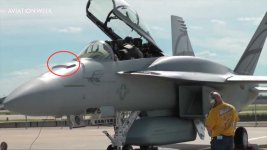Beating up on Boeing is bad for Canada
MICHAEL BYERS
Michael Byers holds the Canada Research Chair in Global Politics and International Law at the University of British Columbia
Justin Trudeau has been far from conciliatory in his dispute with Boeing. "We won't do business with a company that is busy trying to sue us and put our aerospace workers out of business," the Prime Minister said at a press conference on Monday.
Mr. Trudeau might sound tough and principled, but he's playing domestic politics – to the detriment of Canada's wider interests in a rule-based system of international trade.
Politically motivated support for Montreal-based Bombardier is a Canadian tradition. In 2001, the Jean Chrétien government gave the company a $1.7-billion low-interest loan to help secure an order from Air Wisconsin.
I remember having coffee with a retired Liberal cabinet minister the day after the loan was announced. I expressed surprise that the government would act in a manner that so clearly violated World Trade Organization rules.
"The PM doesn't care about the WTO," the ex-minister replied. "This is about jobs and votes."
Brazil promptly challenged the loan on behalf of its national airplane manufacturer Embraer. The WTO confirmed that Canada had acted illegally and authorized Brazil to impose $247-million (U.S.) in retaliatory trade sanctions. As a result, not only did Canadian taxpayers fund the loan to Bombardier; Canadian exporters paid a hefty fine on top of the subsidy.
Fast forward to 2015, when the Quebec government provided Bombardier with an emergency bailout of $1-billion (U.S.). It was cast as an investment, with the province receiving a 49.5 per cent stake in a new limited partnership created specifically for the manufacturing of C Series planes.
However, given the precarious nature of Bombardier's finances, it is unlikely that any commercial investor would have spent $1-billion without insisting on acquiring control of the company.
The Trudeau government knew that Quebec had violated international trade law. This explains why it took 16 months to come up with a different mechanism for providing federal support for Bombardier, via a $372.5-million loan for "research and development."
Yet at the international level, the federal government is also answerable for the actions of provincial governments.
Brazil has already initiated another WTO complaint, arguing – again on behalf of Embraer – that Quebec's 2015 "investment" is an illegal subsidy.
Boeing, for its part, has filed a complaint with the U.S. International Trade Commission, a quasi-judicial body that advises the U.S. Congress on trade matters. If the International Trade Commission finds that Quebec subsidized Bombardier, Congress will likely adopt trade sanctions. And then, Canada could file a complaint against the U.S. with the WTO.
These dispute-settlement processes are rigorous and objective. This is something that successive Canadian governments have valued, because free trade requires the apolitical application of rules.
Mr. Trudeau, by trying to strong-arm Boeing, is undermining these processes and Canada's long-term interest in an international legal system that protects countries and companies against arbitrary and unfounded actions.
He is also contradicting himself. It was the Trudeau government that fought to keep third-party dispute settlement in the Comprehensive Economic and Trade Agreement with the European Union. It is the Trudeau government that is resisting the efforts of U.S. negotiators to remove third-party dispute settlement from NAFTA. Yet in the Boeing case, Mr. Trudeau wants to pre-empt third-party dispute settlement through economic coercion.
Aggravating matters, Mr. Trudeau has dragged military procurement into a dispute over commercial trade and investment. Yet military procurement has always been treated separately from other economic matters. It is not subject to trade and investment treaties precisely because of the critical importance of military equipment to national security.
By conflating a military procurement with a commercial trade dispute, Mr. Trudeau is damaging Canada's reputation as a reliable procurement partner. This will complicate and further delay procurements that are necessary for the protection of Canadians at home as well as the ability of our soldiers, sailors and pilots to contribute to missions abroad.
The procurement of fighter jets is a case in point. The Trudeau government says there is a "capability gap," since our CF-18s are three decades old. Yet by linking the dispute over Bombardier with the "interim" purchase of 18 Super Hornets, Mr. Trudeau is extending the capability gap that his own government identified.
Beating up on Boeing is bad for Canada. If Mr. Trudeau wants to defend Quebec and Bombardier, he should do so at the WTO, and not on TV.
https://beta.theglobeandmail.com/opinion/beating-up-on-boeing-is-bad-for-canada/article36322185/


